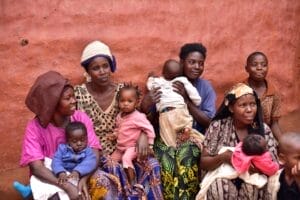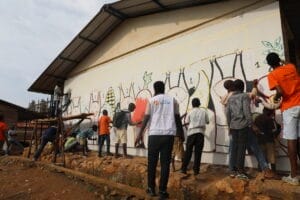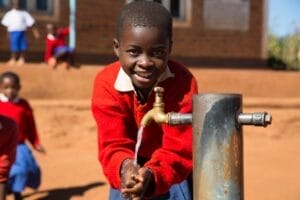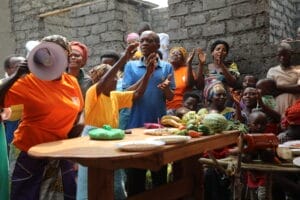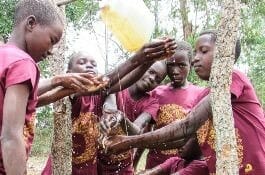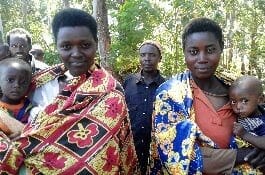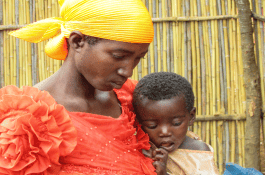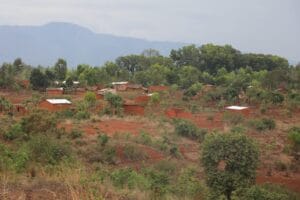
To strengthen the nutritional resilience of Burundi's rural populations by improving access to health services, building community capacity and promoting…
Discover moreA landlocked country in East Africa, Burundi is ranked among the poorest countries in the world, with one of the highest population densities (around 560 inhabitants/km²). Ranked 187th out of 193 countries on the Human Development Index (HDI), 72.8% of the population lives below the poverty line (less than USD 1.90/day), with limited access to basic services such as drinking water, healthcare and education.
In recent years, the country has been going through a socio-political crisis, which has led to an economic recession marked by shortages of basic necessities such as sugar, fuel and cement, as well as a crisis in the transport sector.
Burundi continues to face major structural challenges, including a fragile economy, persistent food insecurity and devastating climatic impacts.
Although arable land is limited and access to quality agricultural inputs remains inadequate, agriculture remains the mainstay of the Burundian economy, providing the main source of subsistence for over 80% of households. The nutritional situation remains critical: some 56% of children under the age of five suffer from stunted growth due to chronic malnutrition, one of the highest rates in the world.
The country is also continuing to manage the return of more than 415,000 Burundian refugees, who fled to neighbouring countries following the violence in 2015, mainly from Tanzania, requiring sustained efforts for their social and economic reintegration.
WeWorld has been working in Burundi since 1995 to meet the basic needs of the most vulnerable people. Our interventions mainly cover the sectors of nutrition, health, food security and water, hygiene and sanitation (WASH).
These programmes aim to strengthen the resilience of rural communities, improve the nutritional status of women and children, and contribute to sustainable access to basic social services in a context marked by poverty, chronic food insecurity, the effects of climate change and population movements.
Nutrition is WeWorld's historical sector in Burundi, with significant and recognised expertise: our actions began with the management of acute malnutrition, and were then aligned with an approach that requires the participation and effective commitment of the community and various health structures.
Our approach is based on an integrated, participatory and multi-sectoral approach, which places inclusion, sustainability and respect for national policies at the heart of its actions. We work in close collaboration with local authorities, health facilities, community associations and technical partners to ensure local ownership and sustainability.
These actions are taking place against a backdrop of growing challenges linked to the climate crisis (flooding, loss of arable land), food insecurity, structural poverty and the increase in migratory flows, particularly with the recent arrival of thousands of Congolese refugees fleeing the violence in the east of the DRC.
To strengthen the nutritional resilience of Burundi's rural populations by improving access to health services, building community capacity and promoting…
Discover moreContext: Burundi is experiencing a multifaceted crisis, marked by political instability, repeated climatic shocks and widespread poverty affecting more than…
Discover moreContext: Burundi is experiencing a major return movement of its refugee nationals to neighbouring countries. These repatriations, although voluntary, are…
Discover moreContext: In Burundi, access to drinking water remains a crucial challenge, particularly in rural areas where infrastructure is often inadequate…
Discover moreContext (needs, geographic location): Burundi is experiencing a significant food and nutritional security crisis, with one of the highest rates…
Discover moreIn Burundi, the rural population suffers from scarcity and difficult provision of water, which negatively affects local development. The project…
Discover moreIn Burundi, poverty and socio-economic instability are among the causes of Zero hunger insecurity. These factors are responsible for severe…
Discover moreIn Burundi, the number of asylum seekers is increasing, due to the Human mobility situations of neighbouring countries, and to…
Discover moreSince last January, the Burundian authorities have reported the arrival of about 9,000 Congolese refugees in the provinces 200 km…
Discover moreSince the beginning of 2015, more than 400.000 refugees and asylum seekers fled from Burundi due to the humanitarian crisis.…
Discover moreBurundi registers a chronic malnutrition rate of 56%, which is caused by a lack of essential micronutrients such as B2…
Discover morePopulation growth in Burundi is 3,7% on average, with a fertility rate of 5,9 children per woman. The Demographic and…
Discover more